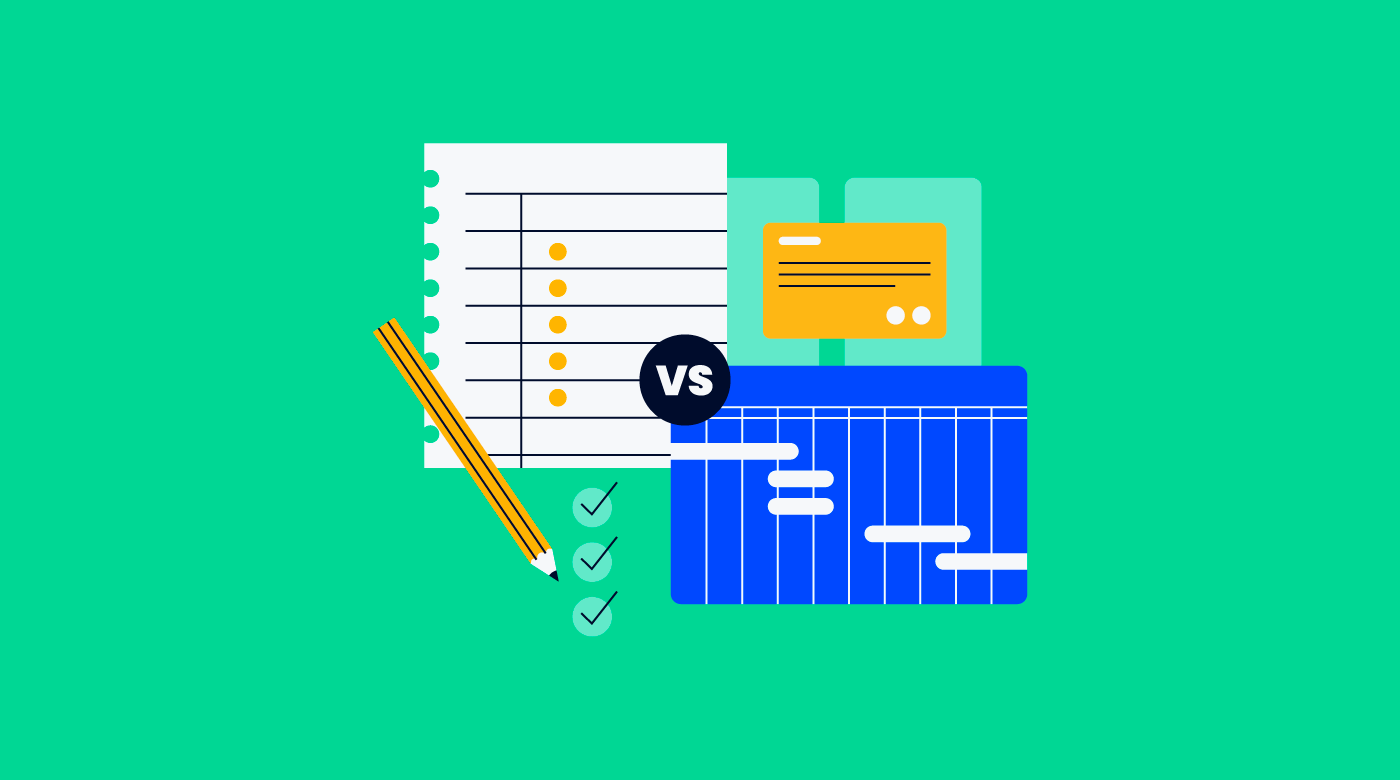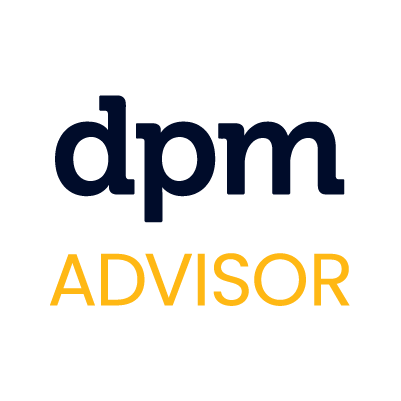When it comes to choosing software, project managers have one thing on their minds: What's the best tool for the job? Often, that comes down to a choice between task management software or project management software.
So what’s the difference between these two types of tools anyway? Is one better than the other? Let’s take a closer look.
Projects vs. Tasks: What’s The Difference?
Let's start by breaking down two essential elements in the world of project management: projects and tasks. Understanding these two will help as a starting point to clarify the differences between task management and project management software.
What is a project? In the project management world, a project is a unique endeavor. It's a step-by-step process with the aim of producing a specific outcome or product, such as designing a new website. It starts when you begin planning and ends when the site is live.
A project is made up of many tasks. It's like a puzzle — tasks are the pieces you put together to get the final picture.
What are tasks? In the project management world, tasks are the small steps you need to take to complete your project. These are the pieces of work that you or your team need to do along the way. In a website design project, a task might be creating a mockup or writing the website copy.
Project Management vs. Task Management
Let's dive deeper into the main differences between project management and task management. Essentially, the scale of what you're trying to accomplish largely determines which of the two apps you'll need.
Project management is geared toward coordinating large-scale projects that comprise multiple tasks, teams, and resources. Task management, on the other hand, is best suited for managing small-scale, standalone tasks—consider it your to-do list. Here are some other differences:
- Size and Scope of Your Goal: Project management is used for larger goals that involve many tasks, like building a house. Task management, on the other hand, works best for smaller goals with fewer tasks, such as replacing a deck tread.
- Detail vs. Big Picture: Task management is detail-oriented, focusing on individual tasks within a project, often with a specific sequence. Project management, however, oversees the entire project from start to finish, providing a big-picture view and coordination of all elements.
- Temporary vs. Continuous: Task management is ongoing, and ideal for handling everyday tasks employees do regularly. Project management is temporary and project-specific, used for one-off, larger projects and specific deliverables like launching a new product.
What Is Task Management Software?
Task management software, is like an advanced digital to-do list. It's designed to help individuals or teams track and manage their work tasks.
These tools allow you to create, assign, and set deadlines for tasks, while also tracking their progress. Perfect for managing simpler, standalone tasks, task management software assists in prioritizing work, avoiding overload, and ensuring everyday tasks get done efficiently.
These task management tools often use Kanban boards and other task organization models to organize tasks for a project. Additionally, third-party integrations can help you improve the tool's capabilities.
What Is Project Management Software?
Project management software is like the maestro conducting an orchestra. It's a tool for managing complex projects involving multiple tasks, resources, and team members.
Beyond tracking tasks, it's about managing the big picture. This software aids in project planning, scheduling, resource allocation, communication, documentation, and risk and change management.
It helps teams stay on track, meet project milestones, adhere to budgets, and deliver successful projects on time. Ideal for large, complex projects, project management software provides the necessary coordination, collaboration, and visibility.
What Are The Main Differences Between The Two?
The difference between these two types of software largely comes down to scale and complexity. Task management software might be enough if you're mostly dealing with individual tasks. If you're juggling multiple projects with numerous tasks and teams with task dependencies, you might need project management software.
Understanding the distinction between task management software and project management software can greatly influence your team's productivity and the success of your projects. Here are 3 main differences between the two.
1. Main Features
Task management software focuses on task-level features, such as task creation, assignment, prioritization, and tracking. Therefore, it is common to see the option to label tasks, color-code them or other ways of prioritizing work.
Task management software also allows you to set recurring tasks and reminder alarms to keep yourself on top of your to-do list. Tools like Asana or Todoist allow you to also set deadlines, add task descriptions, delegate tasks, and comment or collaborate directly on each task.
Project management software also incorporates task-level features but goes much further. It offers features like project planning, resource and cost management, risk assessment, time tracking, and reporting capabilities.
You will also see Gantt charts for visual project timelines, dashboards for real-time project updates, and communication tools for team collaboration.
2. Scope
The scope of these two types of software is a major differentiator.
Task management is essentially a subset of project management. Therefore, task management only focuses on individual tasks. You can use it to organize your work, from personal tasks to small team workflows. It primarily concerns the "what" and "when" of tasks.
Project management involves managing a series of related tasks toward a common goal. It's not just about "what" and "when", but also "who", "how", "why", and "what if". It considers project resources, risks, changes, and stakeholder communication.
Project management software provides a holistic, big-picture view of all project elements. You can use it in more complex, team-based environments.
Need expert help selecting the right Project Management Software?
If you’re struggling to choose the right software, let us help you. Just share your needs in the form below and you’ll get free access to our dedicated software advisors who match and connect you with the best vendors for your needs.
3. Use
You can use task management software for personal task management or in small teams. It's perfect to track day-to-day activities and you can customize it for individual workflows, such as reminders to follow up on an email, contact a client, or pick up your kids from school.
In contrast, you use project management software in a professional, team-oriented setting where many individuals collaborate on large-scale projects. It provides the infrastructure to handle complex tasks, like coordinating a product launch or managing a construction project.
For example, a software development team might use Jira to track sprint progress, or a marketing team might use Basecamp to coordinate a product launch campaign. The project team can use this type of software to plan out a complete project based on the project scope and assign due dates that can be mapped within the software itself. This allows for better visibility and resource management and creates a more transparent and agile workflow for the life cycle of the project.



